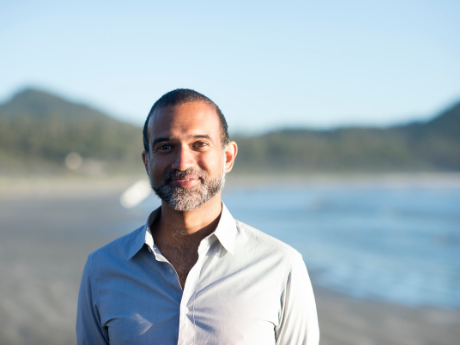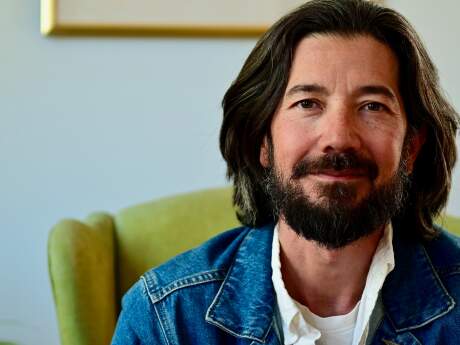Stopping By
Stopping by with Srikanth Reddy

Srikanth Reddy’s latest book of poetry, Underworld Lit, was a finalist for the Griffin International Poetry Prize, the Poetry Society of America’s T.S. Eliot Four Quartets Prize, and a Times Literary Supplement “Book of the Year” for 2020. He is the poetry editor of The Paris Review, and a co-editor of the Phoenix Poets book series at the University of Chicago Press. His new book of lectures on poetry and painting is The Unsignificant.
What is the last thing you read that moved you?
Katie Peterson’s Life in a Field is one of those books that feels like a little miracle to me. It’s about a girl and a donkey, or innocence and experience, or the vast fact of human civilization in all its devastation and grace. It’s a work of art for everybody.
What is a book that changed or greatly influenced your life?
I came across Richard Bach’s proto-New Age self-help book Jonathan Livingston Seagull at our public library at the impressionable age of eight. It briefly convinced me that I could do anything. I’m afraid to read it again now. I think it must be pretty terrible in all sorts of ways.
What is your first memory of poetry?
In kindergarten I wrote a poem about Abraham Lincoln. It was an acrostic spelling out his name—“Amazing. / Brave. / Respected” and so on. That was my introduction to formal literary constraints. And to political poetry, for better or worse.
What do you see as the role of art in public life at this moment in time?
Art might remind us of all the weirdness we try to keep private as we collectively decide how to regulate public life.
How do poems help you make sense of your daily life and the world around you?
Poems help me not to make sense of my daily life and the world around me. They knock me off balance and break me out of habit. They make sound, not sense. Like music, poetry helps me to feel things—but not to make sense of things.
What do you want people to take away from your work?
A different sense of the possibilities in language. Or in us.
Are you working on anything right now that you can tell us about?
I’ve just started working on an adaptation of the ancient Indian epic Mahabharata. The original Sanskrit poem is about eight times the length of the Iliad and the Odyssey put together. They say “what is found in the Mahabharata may also be found elsewhere, but what is not in the Mahabharata is nowhere else,” or something like that. There’s no way I’ll ever finish it.


